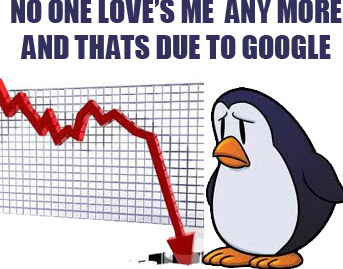Just when things look like they couldn’t get any worse for
Facebook; a new
survey was recently released indicating that 34% of Facebook users are
spending less time on Facebook than six months ago. On top of that, nearly 50%
of the respondents spent around the same amount of time on Facebook. Why the
lack of interest? Maybe it has something to do with perceived user value? It’s
a pretty simple concept really: if somebody finds more value in A than B, they
will demand more of A. Looking at my own daily experiences, Facebook competes
for my other offline and online time reading news sites, blogs, websites, etc.
In short, the more value I find being on Facebook, the more of my time it will
demand…and lately that too has been in question. Just how many narcissistic
posts about where somebody currently is or what they just ate for breakfast can
get a little, shall we say; boring.
Google +’s “me too” Answer To Facebook
As I have noted in previous
posts about Google +, Google + is like they guy who shows up at a party at
2 am in the morning and yells “let’s get this party started!” Even former
Google engineers have referred to Google + as a “pathetic
afterthought” and make it out to be symptomatic of Google losing its way. Since
Larry Page took the reins at Google last year, it seems like everything they do
these days hinges on the success of Google +. To wit: just this week Google announced the
movement from Google Places to Google + Local. Why the change? Why else –
Google wants more Google + members and seemingly everything else they have
tried up to this point to generate more Google + users have failed in
comparison to Facebook. So when all else fails – try and coerce again.
Google + Local to
Drive Google + Membership
Now that business owners are once again confused by changes
to formerly Google Local, then Places and now Google + Local, they will
continue to try to understand, claim, optimize and generate client reviews for
their local listings. The catch? Only people with a Google + account can leave
reviews. But this all didn’t start here. A few months back, Google found yet
another way to generate Google + users by adding
thumbnails adjacent to the certain listings on the Google results pages.
How do you do this? Easy, you need a Google + profile and then you can follow
these instructions. Wayla! More confusion for regular business owners and
more Google + accounts as a prerequisite to play.
Facebook’s IPO
Problem
Most good technology investments have a financial business
model in place to generate revenues – which is what attracts good investors.
When Facebook priced its IPO at 100X earnings compared to Google who is selling
at 11 (and controls 82% of the search market and 98% of the mobile search market), one has little to scratch one’s head over when Facebook loses 30% of its
value in the first few weeks. Facebook has a valuation problem based on revenue
growth and anybody who watched the movie Social Network should understand that
this problem was clearly in sight for all to see long before the IPO ever took place. All these
people that ponied up millions of dollars over the years to Facebook were
expected a big return on their investment and thanks to Morgan Stanley, all glory is
fleeting.
Where Do We Go From
Here
 Social Media could
very well be at a crossroads. On one hand, you have Google who seems to want to
cannibalize any and all of their services to support a system, Google +, that
nobody outside of Google really wants to use. On the other hand, you have Facebook
that has 900 million users, 34% of which indicate that they are losing interest
and a company that now has to somehow generate a boat load of revenues to keep
the dream alive and their investors happy and not jumping for the shore once
the IPO shareholders sell window opens up. Now that’s a pretty tall task for
any 28 year old whose whole business model is built around the promise that
Facebook is “free and always will be.” Perhaps Mark should have learned from
Google whose motto “don’t be evil” has led to the senseless hatred of panda’s
and penguins everywhere.
Social Media could
very well be at a crossroads. On one hand, you have Google who seems to want to
cannibalize any and all of their services to support a system, Google +, that
nobody outside of Google really wants to use. On the other hand, you have Facebook
that has 900 million users, 34% of which indicate that they are losing interest
and a company that now has to somehow generate a boat load of revenues to keep
the dream alive and their investors happy and not jumping for the shore once
the IPO shareholders sell window opens up. Now that’s a pretty tall task for
any 28 year old whose whole business model is built around the promise that
Facebook is “free and always will be.” Perhaps Mark should have learned from
Google whose motto “don’t be evil” has led to the senseless hatred of panda’s
and penguins everywhere.
As for the rest of us, new innovation fostered by freedom of
thought and need will clearly help steer our appetite for better and more
useful innovation in the months and years ahead. Where will all this come from?
Who knows! But is it very likely where we know it will not come from. As Henry
Ford was fond of saying “A market is never saturated with a good product, but it is very
quickly saturated with a bad one.”






